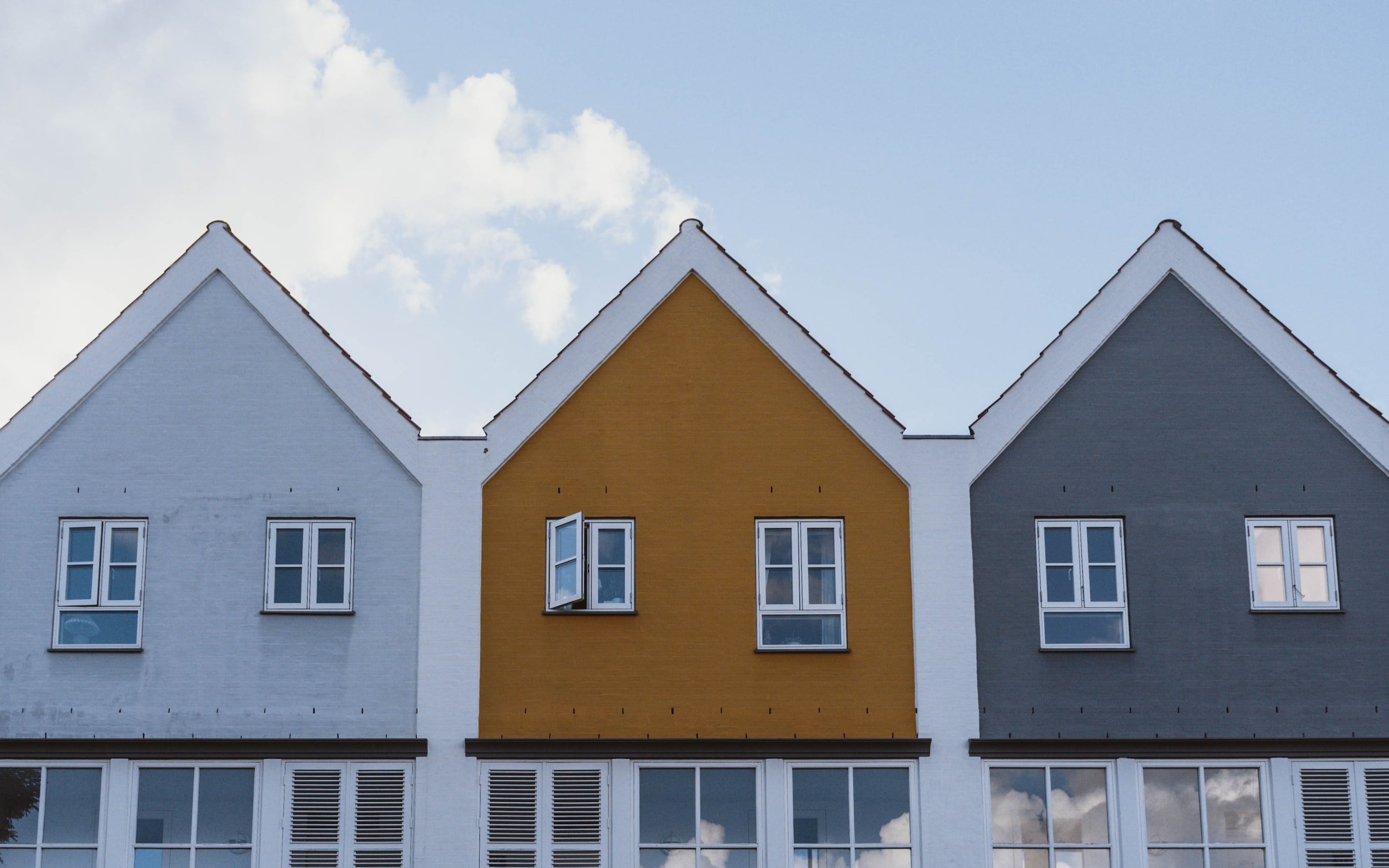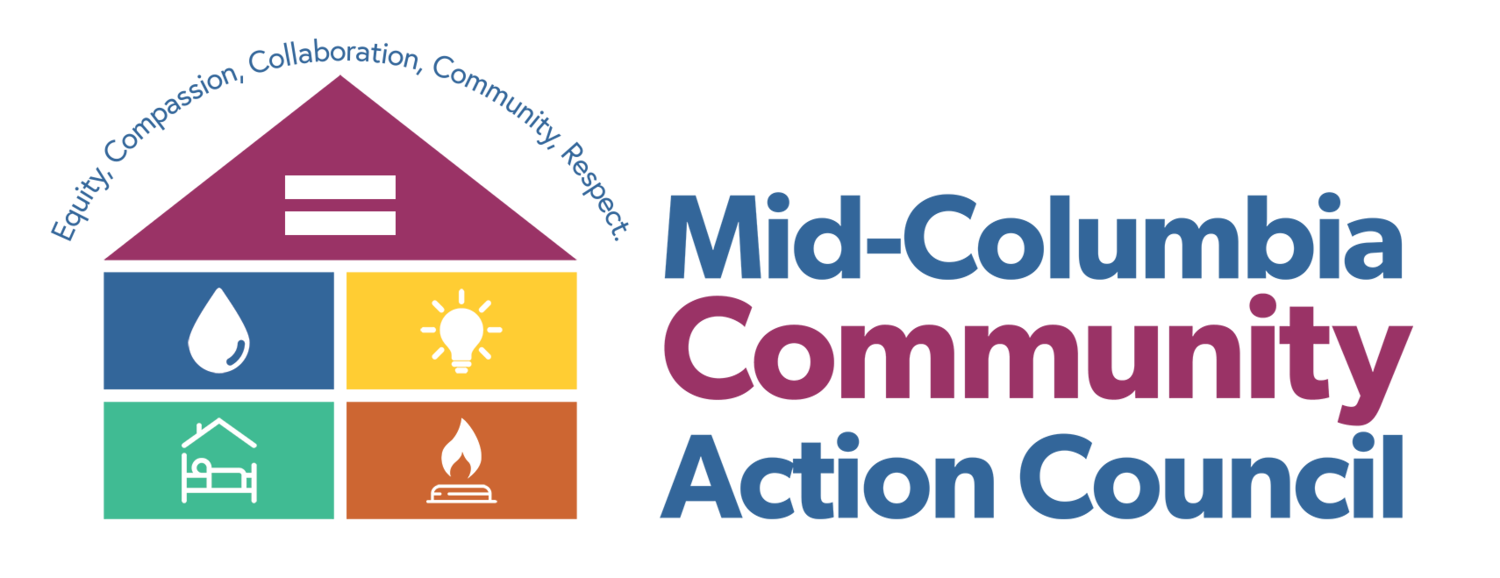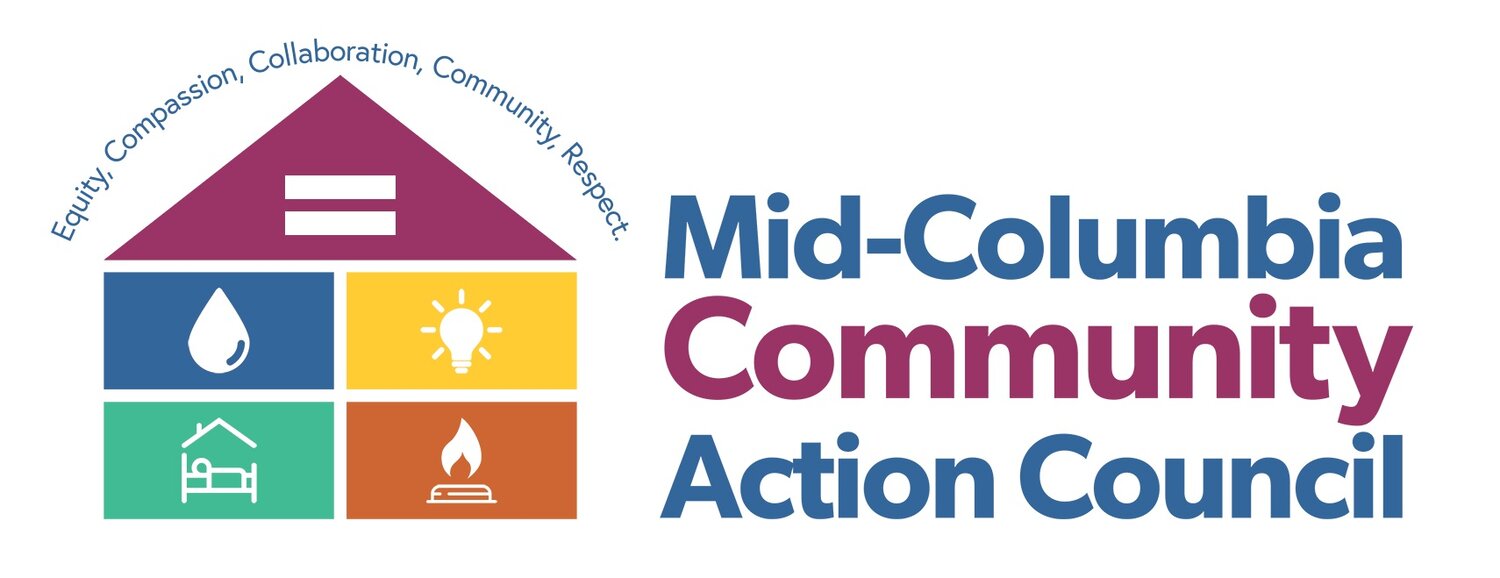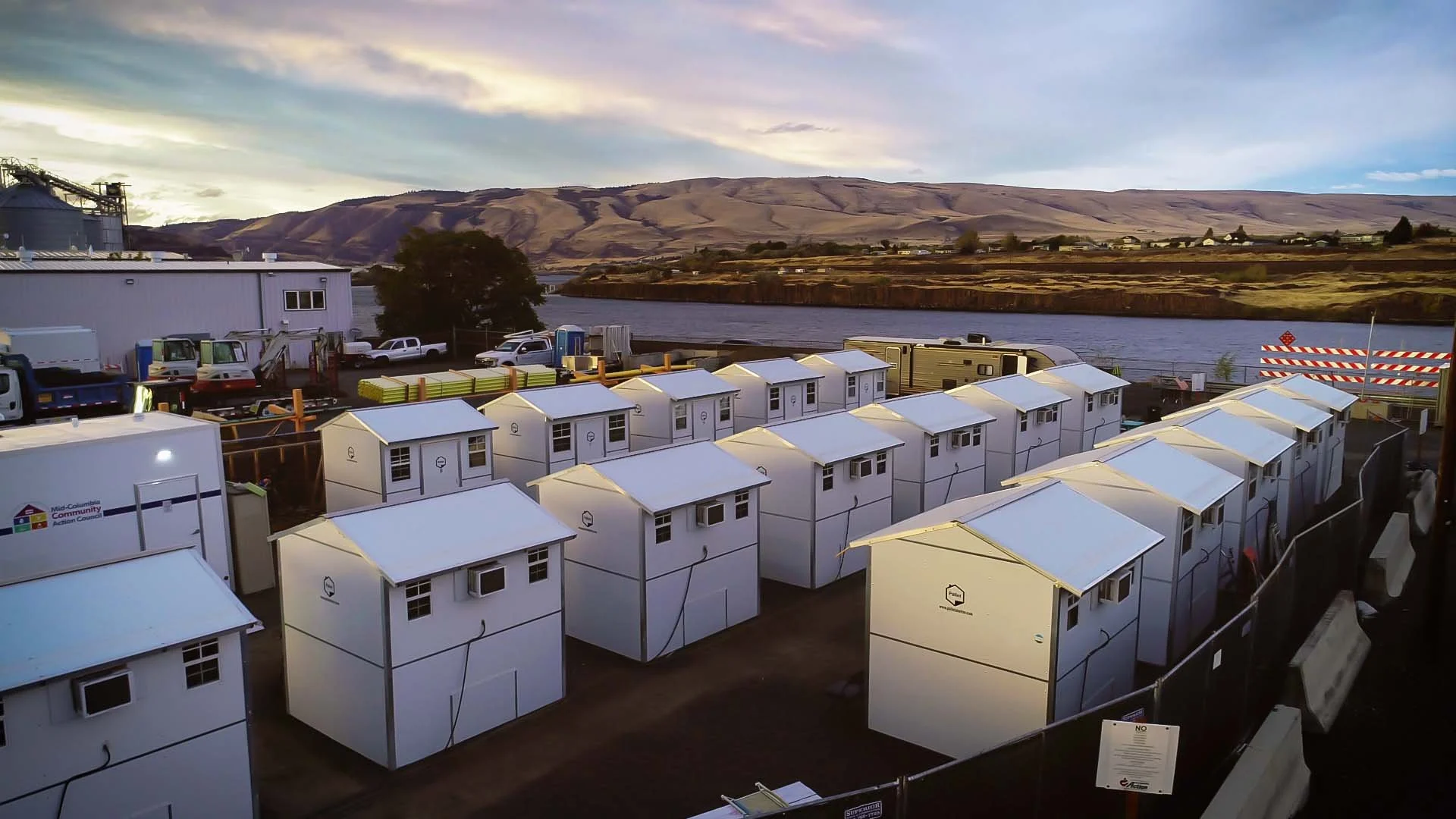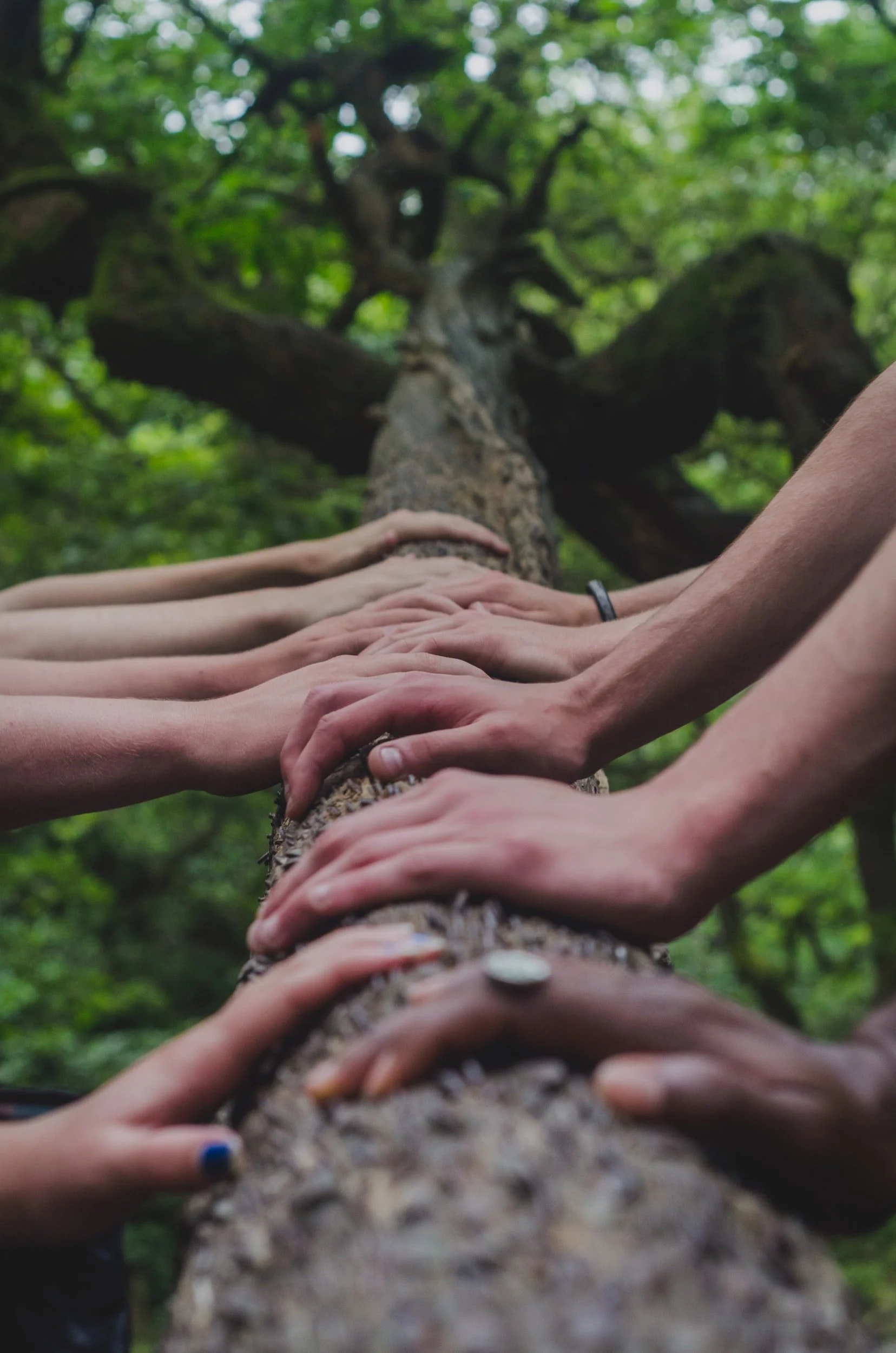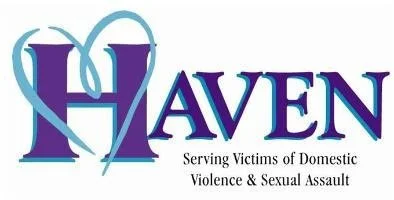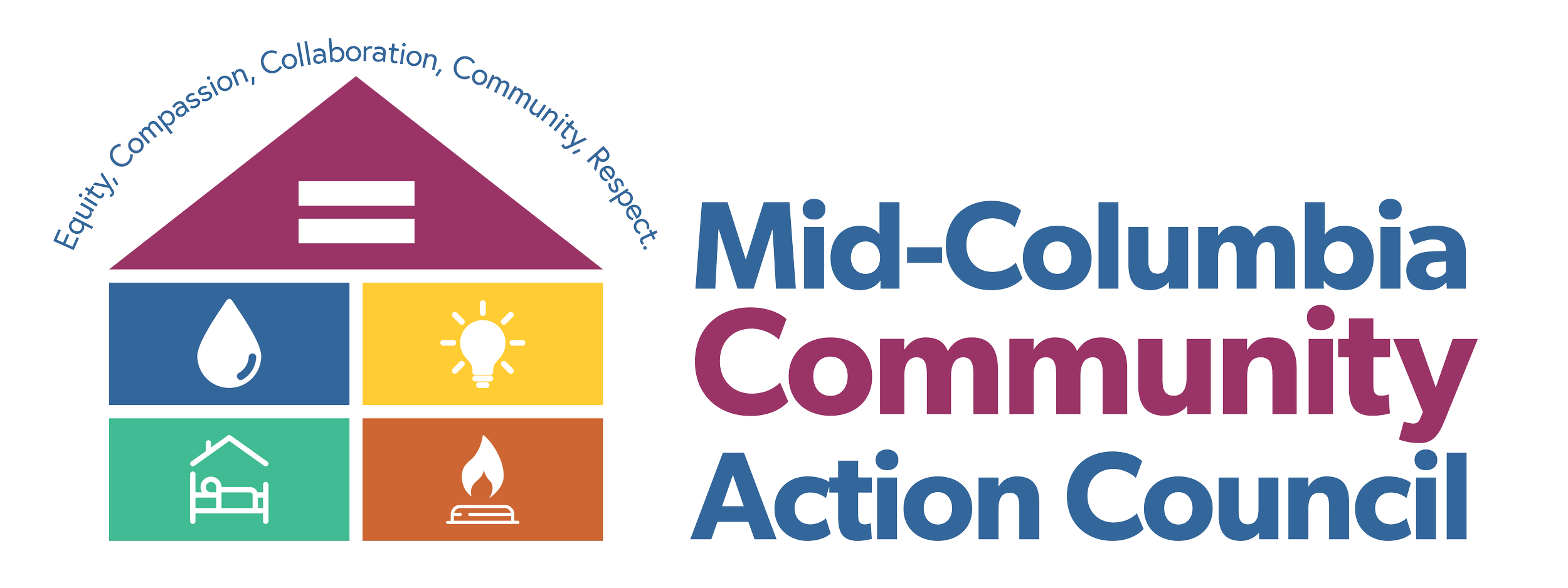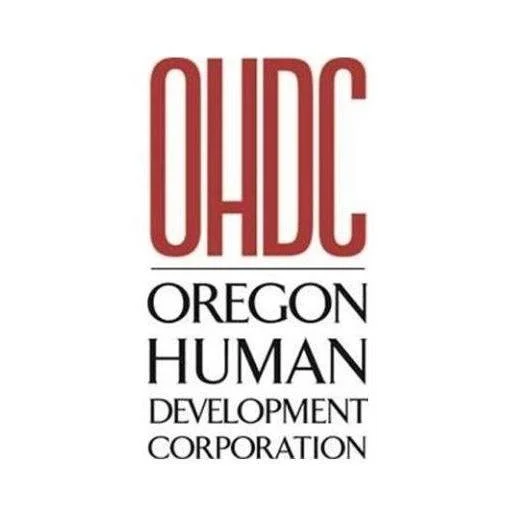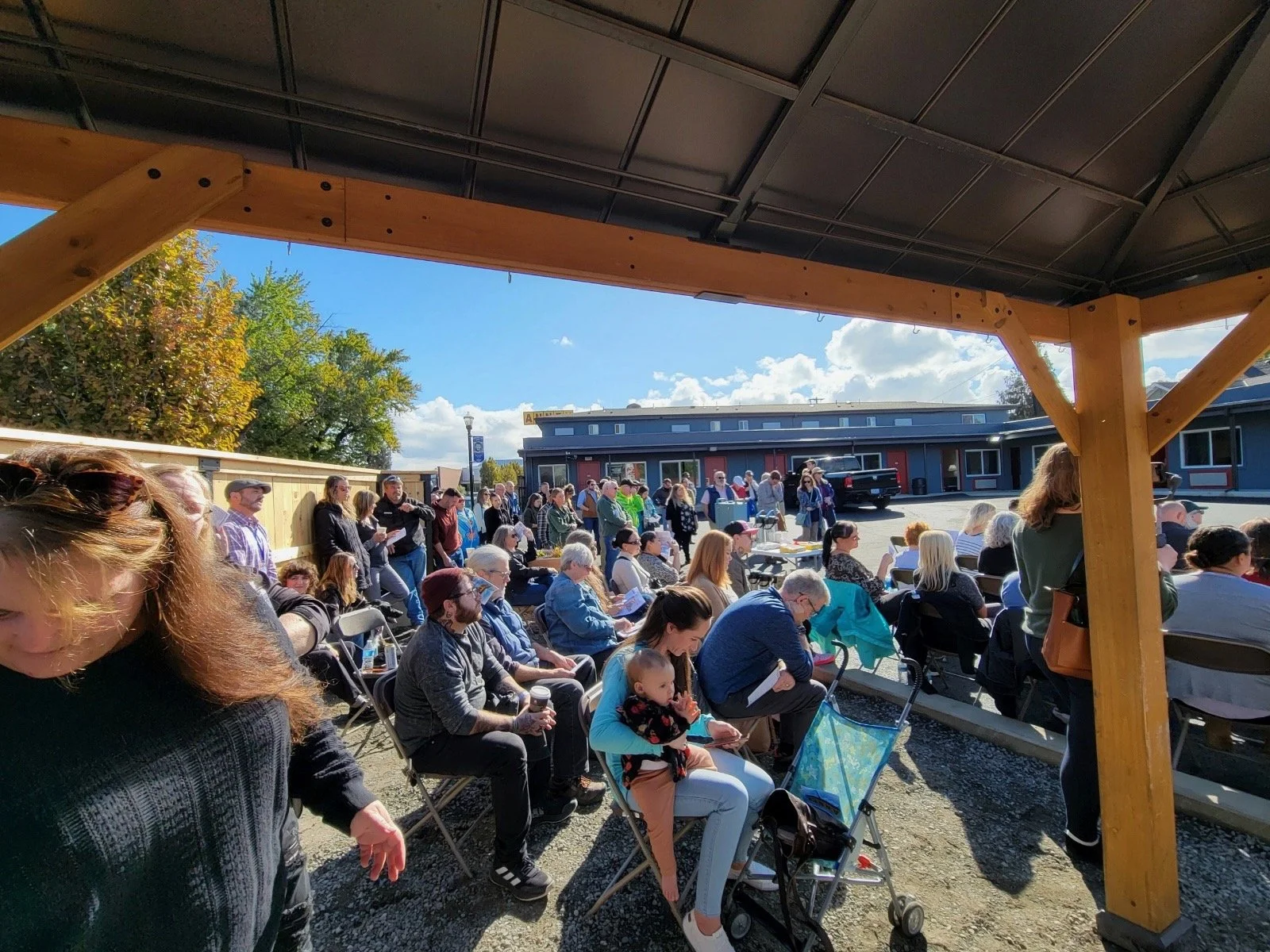Welcome to the Mid-Columbia Houseless Collaborative
Over the years, there have been several, local efforts to work together to prevent and end houselessness in our region. But this work has never been coordinated across all five counties in Oregon and Washington in the Mid-Columbia area. So, in 2022 the region’s leading houselessness assistance providers, Mid-Columbia Community Action Council and Washington Gorge Action Programs, founded the Mid-Columbia Houseless Collaborative. They brought together nearly 40 organizations, local governments, and individuals from Hood River, Wasco, Sherman, Skamania, and Klickitat Counties to write a five-year strategic plan to improve our response to houselessness. Now, the Collaborative is partnering to make it a reality.
Latest Updates
What is the Mid-Columbia Houseless Collaborative?
Vision
The Mid-Columbia Houseless Collaborative envisions a region with equitable opportunities and support, where everyone who needs stable housing can find and afford it—especially communities who have faced disproportionate barriers to housing—so everyone can achieve the best quality of life possible.
Mission
Through collaboration and advocacy, we work to reduce houselessness in the Gorge by expanding housing capacity and ensuring supportive services are provided in culturally affirming ways that uphold human dignity
Values
Compassion and humanity are at the core of our work. As a collaborative, we recognize the hardships that houseless community members experience and the common humanity we all share, regardless of our housing status.
We value collaboration and partnership; working together helps us provide greater support to houseless and unstably housed community members.
Advocacy allows us to do more to support the vulnerable populations we serve when we champion strategic investments, projects, and policy changes.
We elevate diversity, equity, and lived experience. We cannot do this work without acknowledging the disproportionate barriers the housing crisis has created for communities of color and other traditionally marginalized populations. We cannot effectively advocate for solutions without lifting up the voices of those who are or have been houseless.
We value tenacity and perseverance. Houselessness is a complex issue that cannot be solved overnight; we acknowledge that this work requires visionary leadership and resilience.
-
Across Oregon and Washington, communities are facing rising rates of housing insecurity and houselessness. For too many families, staying in housing has become increasingly difficult, if not impossible. Housing supply has lagged while demand has grown. Investors have begun buying up more and more single-family homes. Rents have sky-rocketed. As a result, the idea of being just one illness or car repair away from eviction has become all too familiar to our friends, families, and neighbors.
The issue of houselessness has also become more complex than it used to be. Increasing numbers of unhoused individuals are chronically houseless, meaning they have experienced houselessness for at least a year, or multiple times throughout their lives. Additionally, a growing portion of the houseless population has untreated mental illnesses or substance use disorders that make rehousing more difficult without intensive case management and other supports.
Like with any crisis, houselessness hits some communities harder than others. People of color, LGBTQ+ people, and other historically underserved communities are overrepresented in the houseless population. Families experiencing houselessness are typically headed by women, many of whom are young parents with children, and some of whom are fleeing domestic or sexual violence. People who have been incarcerated are more likely to experience houselessness and struggle to access housing stabilization resources than the general public due to their criminal records.
The Mid-Columbia region is unfortunately not immune from these trends. Preventing and ending houselessness in our area requires urgent, thoughtful work—and most importantly, partnership. Although this is a daunting task, our communities are up to the challenge. To date, there have been multiple, localized efforts to collaborate on work to prevent and end houselessness. However, this work has yet to be thoroughly coordinated across the five-county Mid-Columbia region, resulting in fragmentation across communities. That’s why the Mid-Columbia Houseless Collaborative was founded.
In early 2022, Mid-Columbia Community Action Council (MCCAC) hired a consulting team, Sarah Kellems and Heidi Venture, to develop and convene a Collaborative of organizations and local governments from Hood River, Wasco, Sherman, Skamania, and Klickitat Counties working to address houselessness. With supportive leadership from Washington Gorge Action Programs (WAGAP) and generous funding from Providence, the consultants and MCCAC guided members of the Collaborative through a strategic planning process over the next nine months.
The strategic plan included here represents the work members of the Mid-Columbia Houseless Collaborative will do between 20227-2027 to develop a more strongly connected regional houselessness response system that provides the highest level of service to our most vulnerable community members. It explains how we will leverage and coordinate existing efforts throughout the region, and how we’ll partner to enhance sorely needed services that will help our communities prevent and respond to houselessness more effectively.
This plan also serves as the official work plan for MCCAC’s Office of Housing Stabilization. This office was established in July, 2022 with funding from the Oregon Legislature following the passage of House Bill 4123, which allocated resources to a handful of communities across Oregon, including in Hood River, Wasco, and Sherman Counties, to strengthen their regional houselessness response systems.
As we begin the work of implementing this plan, we need support from the entire, five-county Mid-Columbia community. Growing houselessness is not simply an individual problem with individual solutions. This issue affects the families and children who are unhoused. It impacts our neighborhoods and divides our communities. And it costs our local and statewide economies significant resources that could be saved if we implemented more proactive interventions. At the end of the day, preventing and ending houselessness is our collective responsibility. It requires a unified, systems-level commitment from key community leaders, local governments, housing developers, tribal leaders, social service agencies, landlords, organizations that provide culturally responsive services to underserved populations, private sector partners, and people who have been or are houseless.
Members of the Mid-Columbia Houseless Collaborative have already demonstrated they are ready to make that commitment by writing this plan, and we look forward to the next phase of our efforts together to implement it. As we work to address one of the most complex challenges of our time, we invite you to join us so we can make the Mid-Columbia region the most vibrant community possible for everyone who calls this place home.
Onward,
Kelli Horvath
Director of the Office of Housing Stabilization
Mid-Columbia Community Action Council
Our Commitment to Equity
Owning our History
The Mid-Columbia Houseless Collaborative is aware that housing inequities are rooted in our country’s history. When colonizers displaced the first people of these lands, a base of racial and other inequities was built for future generations who call this place home.
Our Collaborative recognizes not every person is born with the same opportunities to succeed, and because we care about people and our human rights, we must adjust our work to help solve these disparities. Further, we know each of us holds onto beliefs about people that are biased, flawed, and need to be challenged in a healthy and just way.
Committing to Equity
We know our differences in race, ethnicity, national origin, ancestry, language, skin color, disability, family or marital status, gender identity, sexual orientation, language, physical or mental ability, traumas, politics, religion, socio-economic status, veteran status, and other identities make each of us unique and valuable members of our community.
We believe basic human rights include equitable access to safe and easy to afford housing, and other tools that help people get into and stay in housing: health care, education, living wage jobs, social services, and more. We also believe inclusion is key to helping all people in our community to feel valued and have a sense they belong.
As a Collaborative, we commit to equity by working with partners in our region to engage fully in efforts to end poverty and houselessness. To achieve equity in our housing work, we will:
• Find and address root cause(s) of inequity, in our work and our own lives
• Improve housing systems where personal identities predict inequitable outcomes
• Use data to drive decisions and focus resources so equity is not just a concept, but a practice
• Include the voices of people who are or have been houseless, with a focus on communities of Black, Indigenous, and other People of Color (BIPOC)
Collaborative Members
A Coordinated Approach to Housing and Houselessness in the Mid-Columbia Region
2022-2027 Strategic Plan Summary
Not an expert on housing and houselessness? Find a list of definitions here that will help you understand keywords and phrases you’ll see throughout the plan.
Goal Area #1: Shelter
When someone becomes houseless, having a safe place to go matters. So do services that help people get back into housing quickly. We must make sure shelters in our area have the funding they need to keep their doors open. We can also set shelter guests up for more success if we help cover the costs for them to find housing again. Most importantly, we should give them other tools they need to stay housed.
To do that, we will:
❑ Build better systems to coordinate shelter placements and services that help end houselessness
❑ Make sure our region has enough funding to provide shelter, treat shelter staff well, and help shelter guests find housing quickly
Goal Area #2: Services
Tools that enhance people’s overall way of life make them more likely to find housing, and to avoid being houseless again. Those resources could relate to housing—like help paying rent. Or they could address other needs—like job training, affordable childcare, a reliable way to travel to work, mental health services, or paperwork in a language someone knows. To help houseless people get and stay housed, we should expand services in our area. Service providers can also be the most helpful if we respect people’s cultures and their experience being houseless.
To do that, we will:
❑ Improve access to resources houseless people need by asking them what would be helpful, and by valuing their culture
❑ Add more services in our area that help people who need behavioral health care, support after leaving jail or prison, housing that makes it easier to recover after a health event, and resource navigation
❑ Make it simpler for service providers to coordinate care
Goal Area #3: Housing
For too many people in our region, especially people of color and other underserved communities, paying for housing has become very tough. Housing supply does not match demand, investors are buying more homes, and prices are high. Rent is going up. The idea of becoming houseless is getting more familiar for our friends, families, and neighbors. We cannot address houselessness if we do not protect and expand accessible housing that people can afford.
To do that, we will:
❑ Make it easier to build housing that low-income households can afford— and construct at least 262 affordable, accessible housing units in the five-county Mid-Columbia region by 2027
❑ Preserve the region’s existing supply of affordable housing
❑ Help people of color and other underserved populations access housing
❑ Help leaders and the public understand the need for more affordable, accessible housing
Goal Area #4: Advocacy
We need support at all levels to do this work. Growing houselessness is not an individual problem. It affects us all. It also costs our economy resources that we could save by working together. We need to address this issue with the help of the public, non-profits, small businesses, community leaders, governments, tribes, landlords, programs that do culturally responsive work, private donors, and people with first-hand experience being houseless.
To do that, we will:
❑ Explore the need for our work to build community support
❑ Use data to challenge myths about houselessness and teach people about the impact our region’s housing shortage has on us all
❑ Advocate for funding and policies that help us make real progress on these issues
Reports and Resources
Strategic Plan and Reports
Full 2022-2027 MCHC Strategic Plan (Updated 2025)
2022 Affordable Housing & Houselessness Report
Resources and Tools
Houseless Client Feedback Toolkit
Client-Led Housing Stability Planning Quick Reference Guide
Universal Housing Readiness Checklist (English)
Universal Housing Readiness Checklist (Spanish)
The Universal Housing Readiness Checklist is a tool for frontline staff or clients experiencing houselessness to use as they prepare for applying and moving into permanent housing.
The Checklist was created through the efforts of frontline staff from multiple Collaborative partner agencies who regularly work with unhoused clients.
Housing Stabilization Summit 2025
Presenter Materials:
Affordable Housing 101 Presentation from Housing Development Center and Mid-Columbia Housing Authority
Non-Violent Communication (NVC) Intro Training Handout from Rose City NVC
Trauma-Informed Practice Presentation from Pulse Wellness Coop
Trauma-Informed Organizational Systems from Pulse Wellness Coop
Questions? Get in touch.
If you’re experiencing houselessness and looking for assistance please reach out to your local shelter or housing assistance provider.
Wasco, Hood River & Sherman Counties - MCCAC.com
Klickitat & Skamania Counties - WAGAP.org
Join Us
Our Collaborative of nearly 40 organizations, local governments, and individuals like you are helping us turn this vital strategic vision into reality. By joining the Mid-Columbia Houseless Collaborative, you and your organization can be part of this important work within a dedicated network aiming to create sustainable change.
Don't miss this chance to be part of a pioneering effort to end houselessness in our region.
Fill out our form today to learn how you can contribute to building a future where every individual has a place to call home.
